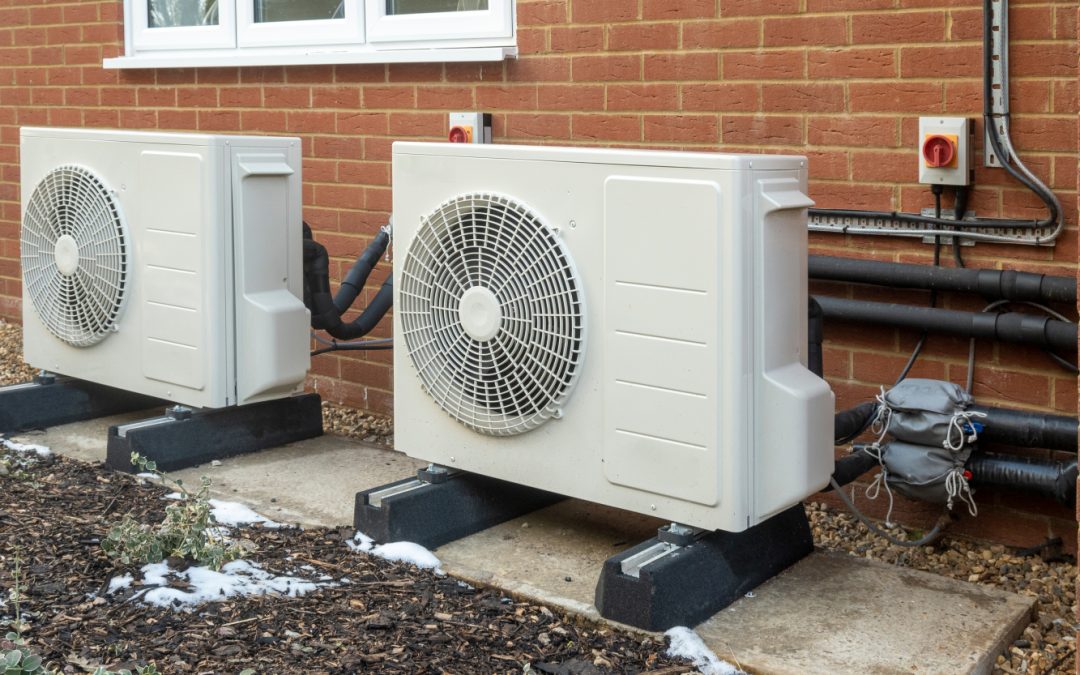What is Hybrid Air Conditioning?
A hybrid air conditioning system represents an air conditioning unit that combines the characteristics of a typical air conditioner with a heat pump, allowing it to deliver both cooling and heating. Similar to a heat pump, hybrid systems can reverse the refrigeration cycle to provide heating, in contrast to conventional systems that simply cool the air. Because of their multiple capabilities, hybrid air conditioners are more energy-efficient than single-function systems and are extremely adaptable and appropriate for year-round use. An integrated system including a heat pump and an air conditioner powers hybrid air conditioners. This is a basic explanation of how these systems work:
- Cooling Mode: Hybrid air conditioners operate similarly to conventional air conditioners while in cooling mode. The heat from the building’s interior is absorbed by the refrigerant and released outdoors. Warm air from the space is first pulled into the system, cooled by evaporator coils, and then recirculated into the space at a reduced temperature.
- Heating Mode: The unit changes the direction of the refrigerant flow through the system when the heating function is engaged. Even in colder climates, the refrigerant carries heat from the outside air to warm the room. Particularly in moderate climates, this method uses less energy than electric heating or other conventional heating techniques.
- Automatic Switching: Depending on the outside temperature, a hybrid system’s most advantageous feature is its ability to automatically choose the most efficient mode. It employs the air conditioning mode for cooling in warmer weather and the heat pump mode for heating in colder weather.
- Energy Efficiency: The main goal of hybrid systems is to optimise energy efficiency. In mild weather, the system will choose the most energy-efficient mode to balance comfort and power usage. Because heat pumps transfer heat rather than producing it through fuel combustion, they require less energy for heating and cooling than traditional systems.
Different Types of Hybrid Air Conditioners:
There are numerous types of hybrid air conditioning systems available, depending on the demands of the user:
1. Split Hybrid Systems:
Systems with separate interior and outdoor units are known as split hybrid systems. The outdoor unit contains the compressor, condenser, and heat pump, while the indoor unit circulates warm or cooled air. These solutions are perfect for residences and businesses where several zones need to be independently regulated.
2. Packaged Hybrid Systems:
These systems integrate both outdoor and indoor elements into a single device. They are perfect for larger commercial buildings or areas that need centralised climate management and are usually installed on rooftops or other outdoor places. Their compact design makes them perfect for offering complete climate control while conserving space.
3. Ductless Hybrid Systems:
These systems, like split systems, distribute air without ductwork. Instead, to target particular locations, they employ several indoor units. Because they are flexible in their installation, these systems are ideal for homes without ducting or for areas that require zoned management.
Hybrid Air Conditioning Systems’ Advantages:
Compared to conventional heating and cooling options, hybrid air conditioning systems have several benefits. Among the main advantages are:
· Energy Efficiency:
Hybrid air conditioning systems’ higher energy efficiency is their main benefit. These systems utilise less energy than gas or electric heating systems since they heat using the heat pump mode. Particularly in temperate regions where both heating and cooling are necessary, this can result in considerable energy cost savings.
· Cost Savings:
While a hybrid air conditioning system may initially cost more than a conventional air conditioner, there are significant long-term cost savings. Reduced energy use results in lower utility costs, and hybrid systems frequently last longer, saving you money on maintenance and replacements.
· Dual Purpose:
For locations with fluctuating temperatures, hybrid air conditioners are perfect. They are a year-round option because they can be used for both heating and cooling. You will save money on installation and upkeep as you won’t need separate heating and cooling systems.
Hybrid Air Conditioning Applications:
The use of hybrid air conditioning systems is growing in both commercial and residential settings. The following are a few typical uses:
1. Residential Homes:
Because hybrid air conditioning systems offer effective year-round comfort without requiring separate systems, homeowners can benefit from them. These units are ideal for households with different climates, particularly in areas with hot summers and mild winters.
2. Commercial Buildings:
Hybrid systems can be used to maintain a constant temperature throughout the year in office buildings, hotels, and other commercial properties. Large spaces with differing temperature requirements in different sections might greatly benefit from hybrid systems’ zoning features.
3. New Construction Projects:
Because hybrid air conditioners provide effective climate management solutions right away, they are growing in popularity in new construction. They are an excellent option for developers who care about the environment because they are also more environmentally friendly than conventional heating and cooling systems.
Frequently Asked Questions:
1. What Causes Refrigerant Leaks and How Can They Be Prevented?
Refrigerant leaks can be caused by corrosion, physical damage to pipelines, or improper installation. Compressor vibrations or poorly joined parts can also cause damage. Using high-quality materials, conducting frequent inspections, and covering pipes with protective coatings to defend them from environmental impacts are examples of preventive techniques.
2. How Does Insulation Improve the Performance of Air Conditioner Piping?
Proper insulation reduces the risk of water damage and mould growth by keeping condensation off pipes. Additionally, it prevents energy loss, which enhances system performance and lowers operating costs. Popular insulating materials like polyethene and foam rubber are picked because of their superior durability and heat resistance.


